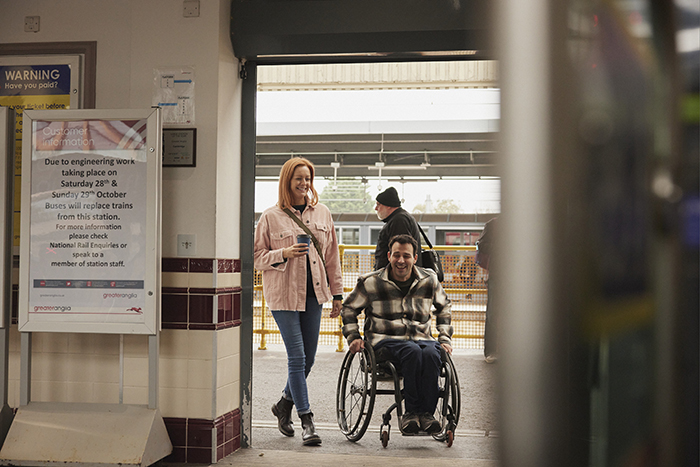We’re creating a railway that works for all the people and places it will serve.
We want everyone who chooses to travel on the railway to have a worry-free and reliable experience. We are working towards this vision by embedding a human-centred design approach into our developing plans and designs which puts the people we are designing for at the heart of the process and starts long before the railway is up and running. Right now, we’re working hard to identify gaps between industry standards and best practice, creating a culture that recognises and values inclusivity and accessibility for everyone. This includes our customers, colleagues, supply chain, and the communities we serve.

The Equality Act 2010 and Public Sector Equality Duty
To help us design, deliver, and operate an inclusive railway, we are embedding a range of equality, diversity and inclusion best practice measures into our assessments and decision making.
The Equality Act 2010 is the legal foundation for tackling disadvantage and improving equality of opportunity for people with the following protected characteristics:
Age, Disability, Gender reassignment, Marriage and civil partnership, Pregnancy and maternity, Race, Religion and belief, Sex and Sexual orientation
The Public Sector Equality Duty is set out in Section 149 of the Equality Act 2010, and requires public authorities and bodies delivering public services and functions (including us at East West Railway Company) to give due regard to the need to:
- Eliminate discrimination, harassment, victimisation and any other conduct that is prohibited by or under the Equality Act.
- Advance equality of opportunity between persons who share a relevant protected characteristic and persons who do not share it.
- Foster good relations between persons who share a relevant protected characteristic and persons who do not share it.
To discover more about accessibility, inclusion and the Government’s approach to an inclusive transport system, please find further reading by clicking the button below.
Find out more
